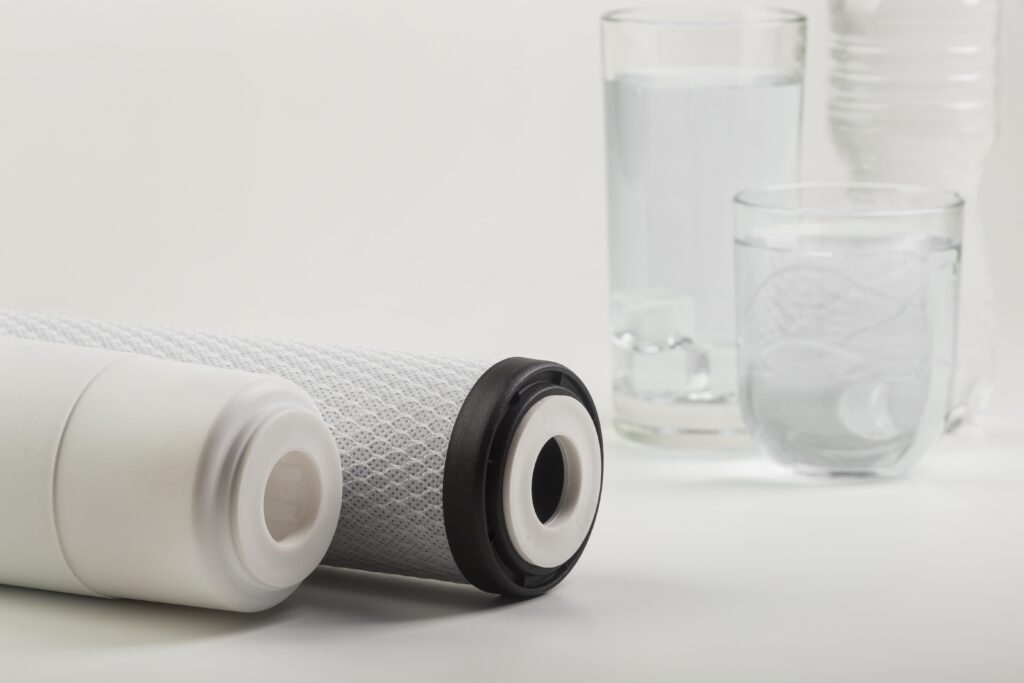Bottled water has long been a staple for those seeking convenience and hydration on the go. However, as our understanding of environmental issues deepens, so too does our awareness of the negative impact of bottled water consumption. From plastic pollution to carbon emissions, the environmental toll of bottled water is significant. In this article, we’ll explore why switching to water filters is not only beneficial for the planet but also for our health and wallets.
The Environmental Impact
Plastic Pollution
Plastic pollution is a global crisis, with millions of tons of plastic entering our oceans each year. Bottled water contributes to this problem significantly, with plastic bottles being one of the most common items found in beach cleanups and litter surveys. These bottles take centuries to decompose, releasing harmful chemicals into the environment as they break down.
Carbon Emissions
The production and transportation of bottled water require vast amounts of energy, primarily derived from fossil fuels. From extracting and processing raw materials to manufacturing bottles and shipping them to retailers, every step of the bottled water supply chain generates carbon emissions. Additionally, the disposal of empty bottles further contributes to greenhouse gas emissions, as plastic incineration releases carbon dioxide into the atmosphere.
Water Consumption
Despite being labeled as “pure” or “natural,” bottled water is not without its environmental cost when it comes to water consumption. The extraction of groundwater for bottling operations can deplete local aquifers, leading to water scarcity in communities that rely on these sources for drinking water. Moreover, the bottled water industry competes with agriculture and other industries for access to water resources, exacerbating water scarcity issues in water-stressed regions.
Benefits of Switching to Filters
Reduction in Plastic Waste
One of the most compelling reasons to switch to water filters is the reduction in plastic waste. By investing in a reusable water filter system, individuals can eliminate the need for single-use plastic bottles, thereby reducing their contribution to the plastic pollution crisis. With proper maintenance, a single water filter can provide clean drinking water for months or even years, significantly reducing the amount of plastic waste generated.
Lower Carbon Footprint
Compared to bottled water, which requires energy-intensive production and transportation processes, water filters have a significantly lower carbon footprint. By purifying tap water at home, consumers can reduce the emissions associated with the manufacturing and distribution of bottled water, thereby lowering their overall carbon footprint. Additionally, by reducing the demand for bottled water, fewer resources are consumed in the production of plastic bottles, further mitigating environmental impact.
Conservation of Water Resources
Water filters promote the conservation of water resources by encouraging individuals to use tap water instead of bottled water. By filtering tap water at home, consumers can reduce the demand for bottled water, which in turn reduces the pressure on freshwater sources. This is particularly important in regions experiencing water scarcity, where every drop of water counts. By conserving water resources, water filters help to ensure a sustainable water supply for future generations.

Types of Water Filters
There are various types of water filters available on the market, each offering different levels of filtration and convenience:
Pitcher Filters
Pitcher filters are one of the most popular types of water filters due to their affordability and ease of use. These filters consist of a pitcher with a built-in filter cartridge that removes impurities from tap water as it is poured into the pitcher. Pitcher filters are ideal for households looking for a simple and cost-effective way to improve the taste and quality of their drinking water.
Faucet-Mounted Filters
Faucet-mounted filters attach directly to the kitchen faucet, providing on-demand access to filtered water for cooking and drinking. These filters are convenient and easy to install, requiring no special tools or plumbing skills. Faucet-mounted filters typically use activated carbon or other filtration media to remove contaminants from tap water, ensuring that it is safe and clean to drink.
Under-Sink Filters
Under-sink filters are installed beneath the kitchen sink and connect directly to the existing water supply line. These filters provide a continuous supply of filtered water for drinking, cooking, and other household tasks. Under-sink filters offer superior filtration performance compared to the pitcher and faucet-mounted filters, as they can remove a wider range of contaminants, including lead, chlorine, and bacteria.
Whole-House Filtration Systems
For comprehensive water filtration throughout the entire home, whole-house filtration systems are an ideal solution. These systems are installed at the point where water enters the home and filter all the water that is distributed to faucets, showers, and appliances. Whole-house filtration systems provide peace of mind by ensuring that all the water used in the home is clean, safe, and free from contaminants.
Cost Comparison
While the initial cost of purchasing a water filter may seem higher than buying bottled water, the long-term savings can be substantial. Consider the cost of purchasing bottled water regularly over several months or years compared to the one-time investment in a water filter system.
Additionally, factor in the environmental and health benefits of using a water filter, which can far outweigh any upfront costs. When viewed from a holistic perspective, investing in a water filter is not only financially prudent but also environmentally responsible.
Convenience and Accessibility
Water filters offer unparalleled convenience and accessibility compared to bottled water. With a water filter system installed in your home, you have access to clean, filtered water whenever you need it, without the hassle of purchasing, storing, and disposing of plastic bottles. Whether you’re filling up a glass of water for yourself or cooking a meal for your family, having access to clean, filtered water at the turn of a tap is both convenient and reassuring. Additionally, with a reusable water bottle in hand, you can enjoy clean, filtered water on the go, without relying on single-use plastic bottles.
Health Benefits
In addition to reducing environmental impact, water filters offer numerous health benefits by removing contaminants and impurities from tap water:
Removal of Contaminants
Water filters effectively remove a wide range of contaminants from tap water, including chlorine, lead, bacteria, and other harmful substances. By removing these impurities, water filters ensure that the water you drink is clean, safe, and free from potentially harmful contaminants.
Improved Taste and Odour
Filtered water often tastes and smells better than untreated tap water, as it is free from chlorine, sediment, and other additives commonly found in municipal water supplies. By removing these impurities, water filters improve the taste and odor of tap water, making it more enjoyable to drink.
Conclusion
The environmental impact of bottled water is undeniable, with plastic pollution, carbon emissions, and water consumption posing significant threats to ecosystems and human health.
Switching to water filters offers a sustainable solution that reduces waste, conserves resources, and promotes better health for both people and the planet. By investing in a water filter system, individuals can take a simple yet impactful step towards reducing their environmental footprint and ensuring a healthier, more sustainable future for all.





